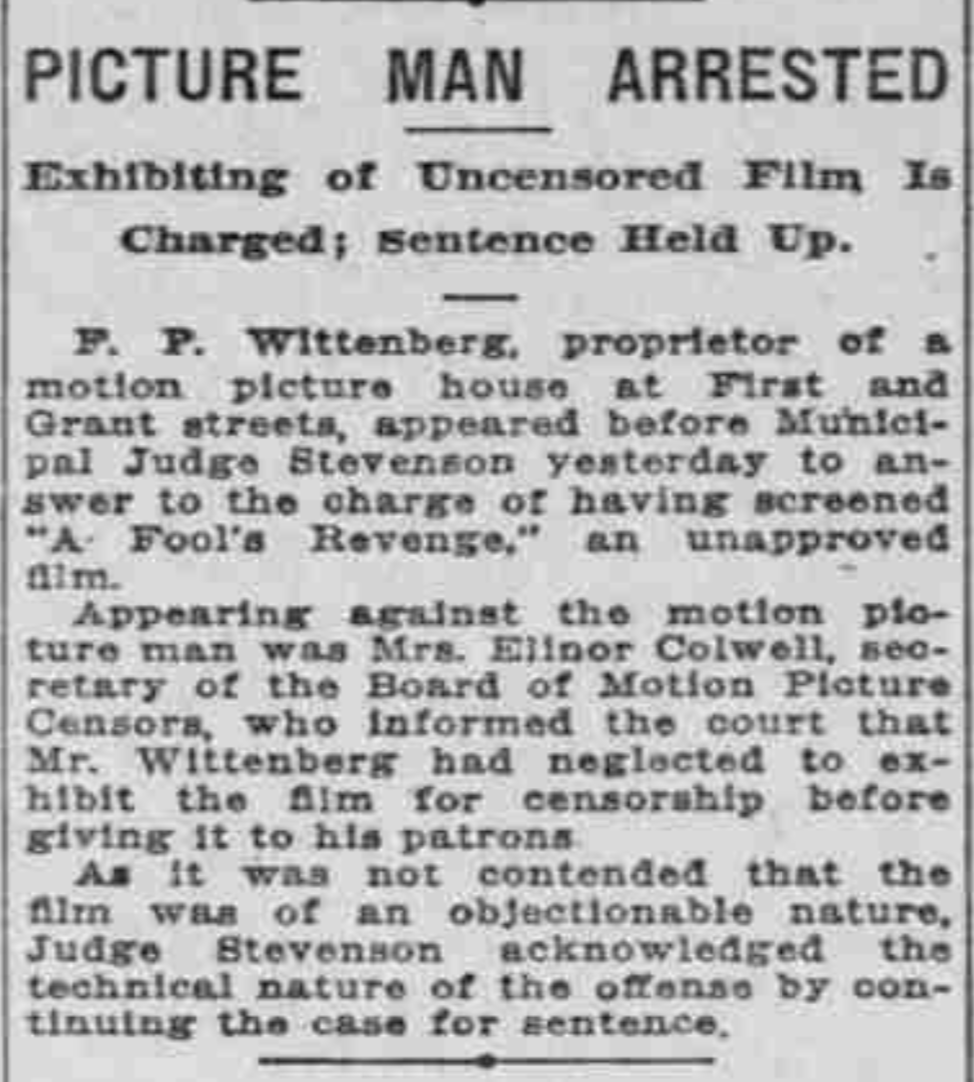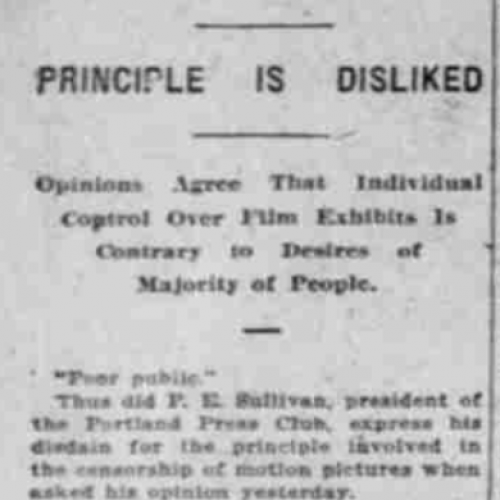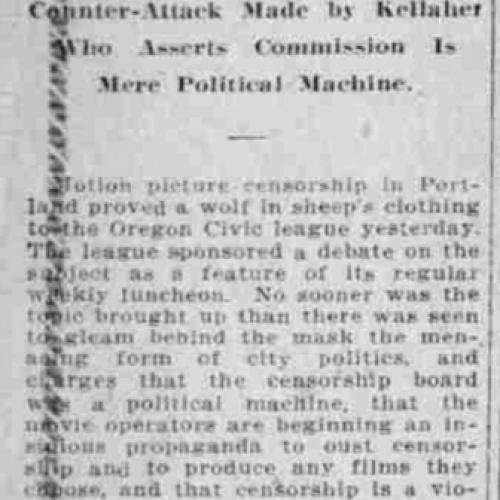With the moving picture industry expanding at a rapid pace, film censorship was quickly growing as a potential threat for those involved in the industry. According to an article from The Sunday Oregonian in 1915, there was an opposition to film censorship by men of The Portland Press Club. The president of the club made the argument "if exhibitors in Portland show flagrant pictures, the public itself will be the censor". He continued to explain that if a picture is disliked by the public, it will fail and no longer be shown. I found this opinion on censorship to be very progressive coming from a man in 1915. A good majority of men were for censorship in order to protect women and children from any obscenities in movies, but of course, the men were able to see certain risqué pictures.
Censorship was still a hot debate in Portland even 5 years later in 1920. In The Sunday Oregonian, there was a major debate amongst the Oregon Civic League that led to the mayor to make decisions about the censorship board in Portland. Arguments were made that the censorship board was “a political machine” and that “censorship is a violation of sacred rights of free speech”. Some believed that exhibitors and producers were against the board in order to produce any type of picture they wanted. This seems like an innocent comment, but in context, it paints the people involved in the industry as the villains because they are assuming they just want to produce films with obscenities in them.

In between all of the censorship debate, exhibitors were being arrested for failing to abide by censorship laws. In The Morning Oregonian, an article explains how a “picture man” was arrested for exhibiting an uncensored film. The film in question was The Fool’s Revenge (Will S. Davis, 1916), which was unapproved by the board. The man arrested was F. P. Wittenberg who was a proprietor of the theater at First and Grant St. I found it interesting that he was arrested because he failed to submit the film to the Portland censor board before showing it to local patrons. At the time, I think it would make more sense to fine him. It just seems over the top to be arrested for something this simple. However, it goes to show how censorship affected exhibitors, theater owners, and local theatergoers as well.
CITATIONS
The Sunday Oregonian, Aug. 29, 1915, p. 11. Historic Oregon Newspapers.
The Sunday Oregonian, Feb. 15, 1920, p. 12. Historic Oregon Newspapers.
The Morning Oregonian, Apr. 6, 1917, p. 11. Historic Oregon Newspapers.

